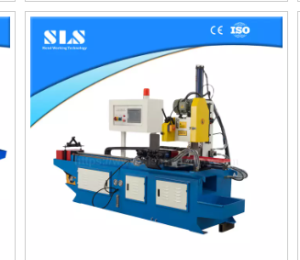Choosing the right steel tube bender is critical for ensuring high-quality bends, operational efficiency, and the longevity of your equipment. Steel tube benders are essential tools in industries such as automotive, aerospace, and construction, where precision and reliability are paramount. Here’s how to make sure you select the right steel tube bender for your needs.
Assessing Your Needs
Identify the Application
- Production Volume: Determine whether you need a bender for high-volume production or for more occasional, custom jobs.
- Tube Specifications: Consider the diameter, wall thickness, and type of steel you will be bending. This will affect the type of bender you should choose.
Types of Steel Tube Benders
- Manual Steel Tube Benders: Ideal for smaller workshops or occasional use, where the volume and speed are not as critical.
- Hydraulic Steel Tube Benders: Suitable for medium to high volume or for bending thicker and harder steel tubes. These benders provide more power and consistency.
- CNC Steel Tube Benders: Best for high precision and high volume, where complex bends or multiple bends per piece are required.
Key Features to Consider
Bending Capacity
- Ensure the bender can accommodate the size and type of tubes you intend to bend. This includes the maximum diameter and wall thickness the bender can handle.
Bending Accuracy
- Look for benders that offer precise control over bending angles. CNC benders are typically the most accurate, with programmable settings that can repeat exact bends consistently.
Build Quality
- Choose a bender constructed with high-quality materials capable of withstanding the rigors of bending steel. This is crucial for maintaining performance and extending the life of the bender.
Economic Considerations
Cost
- Compare the initial cost against the features and reliability of the bender. Remember that the cheapest option might not offer the best value if it cannot meet the demand of your operations or if it requires frequent repairs.
Operational Efficiency
- Consider how the bender will fit into your workflow. Hydraulic and CNC benders, although more expensive, can significantly reduce bending time and labor costs, thus improving overall efficiency.
Maintenance and Durability
- Factor in maintenance requirements and the availability of spare parts. A bender that is easier to maintain and repair will have less downtime and can be a more cost-effective choice in the long run.
Making the Purchase
Where to Buy
- You can purchase steel tube benders from specialized industrial machinery suppliers, directly from manufacturers, or through online industrial equipment platforms.
Check Reviews and References
- Look at reviews from other users and ask for references from the supplier to gauge the performance and reliability of the bender.
After-Sales Support
- Ensure that the supplier offers good after-sales support, including customer service, technical support, and warranty. This support can be crucial for troubleshooting and ensuring the bender continues to operate effectively.
Conclusion
Selecting the right steel tube bender involves a thorough understanding of your needs, the capabilities of different types of benders, and the economic implications of your choice. By considering these factors, you can choose a bender that not only fits your budget but also increases your production efficiency and quality of work. To explore options and compare features and prices, check the latest tube bender price for models that may be suitable for your specific bending needs.
